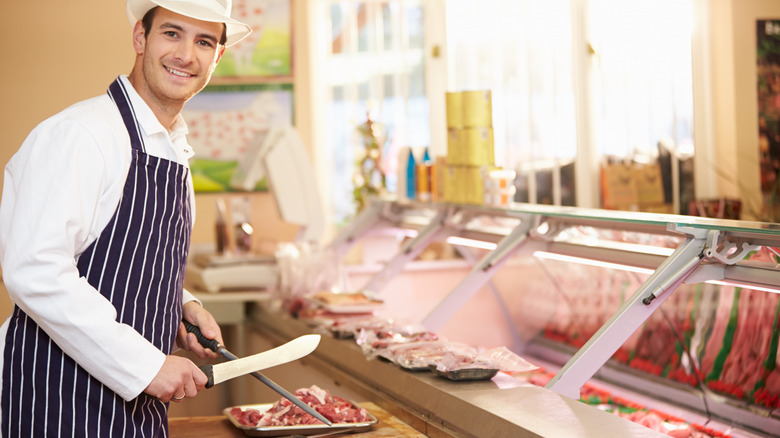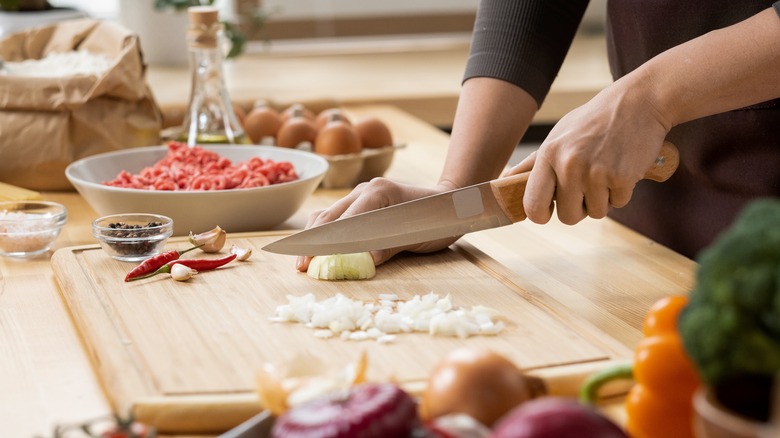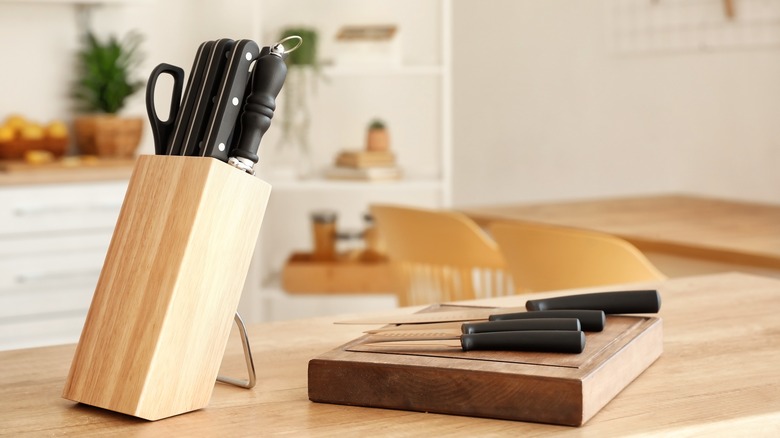How To Get Kitchen Knives Sharpened At Your Grocery Store
Having sharp knives makes cooking and eating at home more enjoyable, but it can be hard to prioritize the task of sharpening your knives, especially if you are not entirely sure how to do so on your own. If you would rather leave this chore to the professionals for your safety and for the well-being of your knives, there is an easy way to do so while also knocking another item off your to-do list: take your knives to be sharpened at your local grocery store.
Not every grocery store offers this service, but it is worth asking whether knife sharpening is available for free or for a fee. You can call to check or talk with someone at the butcher counter next time you are grocery shopping. When you do bring your knife in to be sharpened, be sure to safely transport it wrapped in a sheath or kitchen towel within a sturdy bag to avoid accidentally hurting yourself or others.
When to sharpen your knives
When heading to the grocery store to have your knives sharpened, aim to arrive early in the morning or during a time of the day when there is less demand at the butcher counter. This way your knives will get better attention since the butcher won't be occupied with fulfilling many orders for other customers waiting on the other side of the counter. Bring in just one or two knives at a time to be respectful of their time and efficient with yours as you complete your shopping. (An argument can be made that you need only three knives in your kitchen anyway.)
How frequently you bring your knives to the grocery store to be sharpened depends on a variety of factors, including how often you use them. If you cook at home daily, your knives should ideally be sharpened about twice a month. A grocery store is an especially convenient option as a place for sharpening knives since it is likely somewhere you already visit often.
Keeping your knives sharp
How often you sharpen your knives is also determined by how you store them. While some claim that you don't need enough knives to fill a knife block, others assert that this storage method dulls the blades. You may want to consider getting a magnetic strip to keep your knives safely stored against a wall in your kitchen, where they are less at risk of being damaged or causing any injuries. While a sharp knife may seem dangerous, a dull knife stored or used improperly can pose even greater risks in a home kitchen.
Another important factor is the kind of cutting board that you use. A wooden cutting board is ideal because wood is a softer material than the materials that make up the blade of your knife. Keep in mind that some knives will need to be brought in to sharpen at your grocery store more often than others. Once you get in the habit of sharpening them regularly, you'll notice the difference when your knives are becoming worn down.



